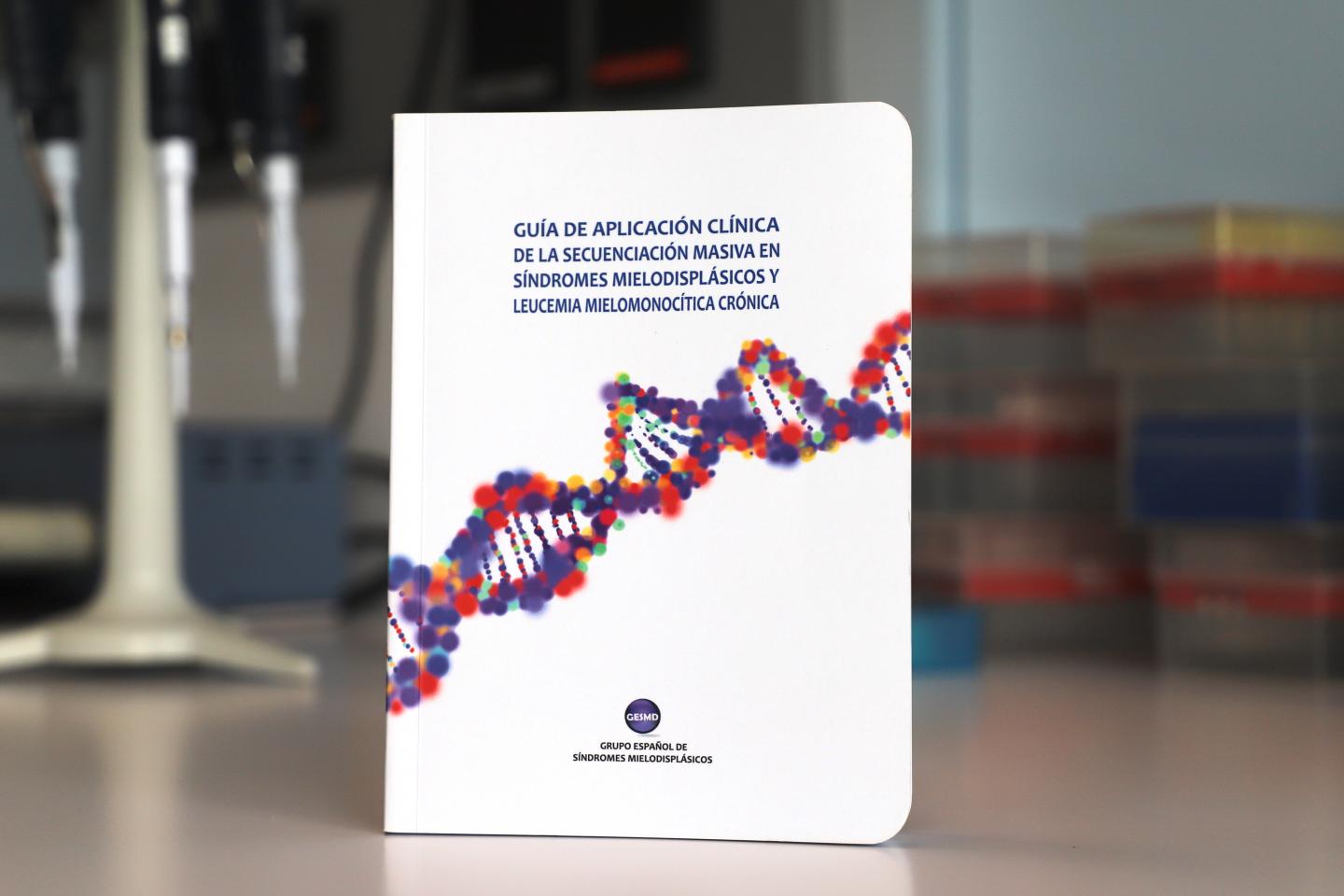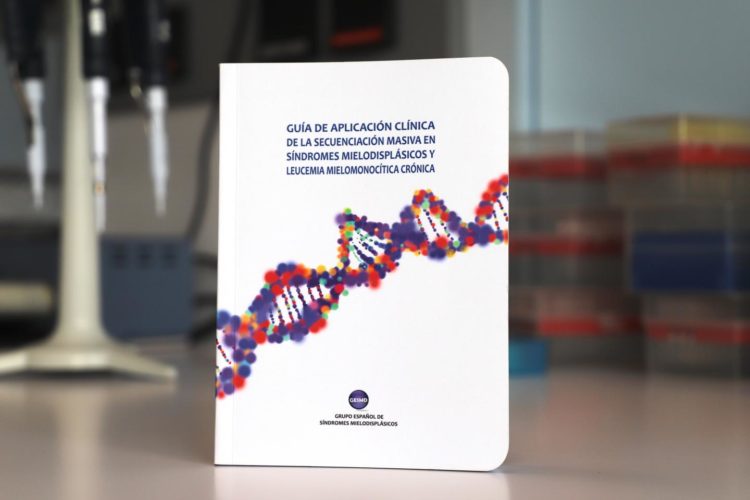
Credit: Helena Díaz. Josep Carreras Leukaemia Research Institute
In Spain, a workgroup of more than 400 researchers, the Spanish Group of Myelodysplastic Syndromes (GESMD), meets twice a year to present projects and undertake collaborations that improve their work in the fight against Myelodysplastic Syndromes (SMD) and Chronic Myelomonocytic Leukaemia (CMML), two types of blood cancers.
Among these projects, this group undertook the development of guidelines to set Next Generation Sequencing (NGS) to improve diagnosis, prognosis and decision making on the Treatment of patients with these diseases.
NGS allows sequencing from an entire genome to the parts of it, such as specific genes that are involved in a disease. The genome is the genetic code, the instructions of a human being to generate both the tissues, organs, and functions of the body. We share 99.9% among all humans, and 0.1% is everything that makes us different, from our eyes’ colour to be more or less likely to develop cancer.
Researchers from 8 research centres and Spanish hospitals, from the GESMD, have agreed to guide haematologists on how to study the 40 most relevant genes in the study of the MDS and the CMML, and detail the steps to follow for the application of the NGS technique in hospitals and Laboratories. The guides include technical aspects, quality controls, what types of samples are needed, how to prepare them, how to analyse and understand the data, and how to set the results in a clinical report to explain to the patients the results in the context of the disease.
The guide was printed as a book in Spanish, with the help of Celgene, and has been recently published in the British Journal of Haematology, making it available for analysis in other countries.
“This study is important because it gives recommendations on how to apply a technique that generates relevant information at three levels: diagnostic, prognostic, and treatment information,” resumes Laura Palomo, co-author of the study.
“A few years ago, in MDS, there were not many important genes for diagnosis. Thanks to the NGS, we have more information to classify patients more accurately, as well as establishing their risk or prognosis. You can classify a low or high-risk patient, and treat him accordingly. If you are a low-risk patient, you will have a more supportive treatment to treat dysfunctions such as anaemia. If the patient is high-risk, with a strong probability of evolving into acute myeloid leukaemia, you will give him a more aggressive treatment. There are specific genes that give us prognosis information, such as if treatment is not going to respond, and this optimizes the time and chances of success of the treatment of the disease.”
###
This work has been performed in collaboration between the Josep Carreras Leukaemia Research Institute, the University and Polytechnic Hospital de la Fe, the University Hospital of Salamanca, CIMA Lab Diagnostics, the Catalan Institute of Oncology at the Trias i Pujol Hospital, the Hospital 12 de Octubre, the University Hospital Vall d’Hebron, and Nimgenetics, and has been funded by CERCA from the Generalitat de Catalunya, the Josep Carreras Foundation, the Spanish Group of Myelodysplastic Syndromes and Celgene.
Media Contact
Isabel Troytiño
[email protected]
34-636-761-712
Related Journal Article
http://dx.





